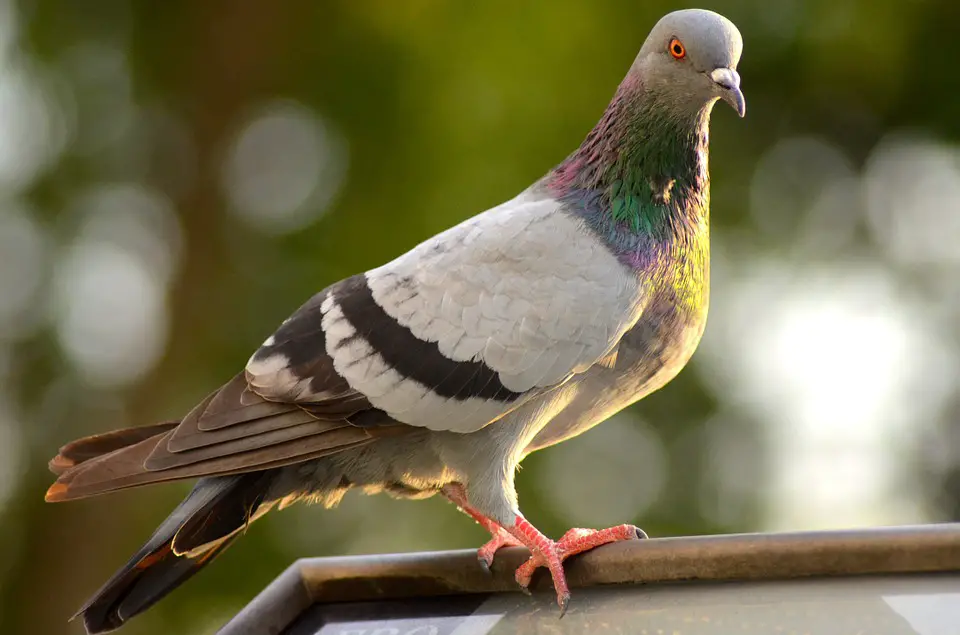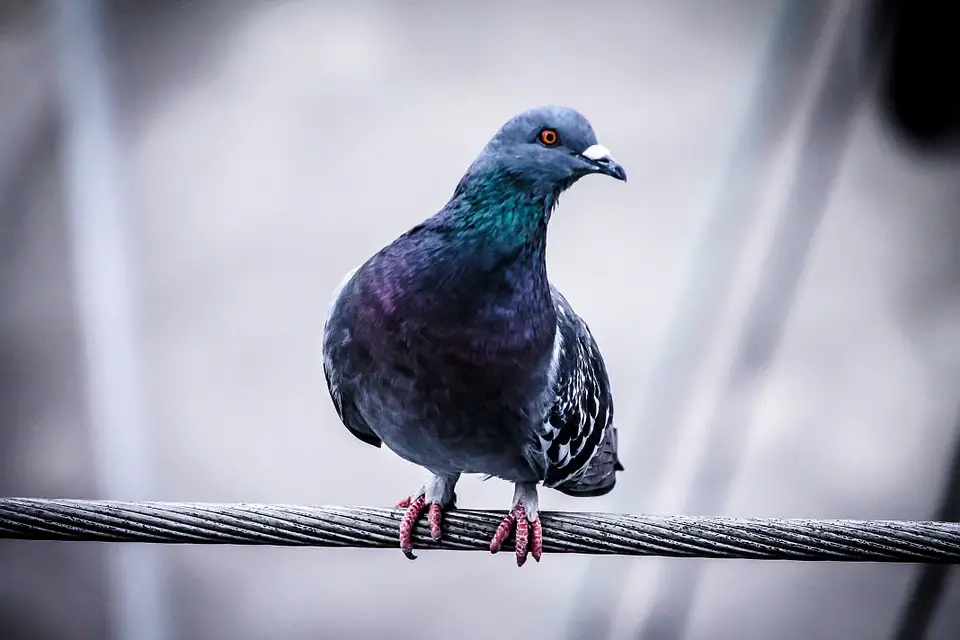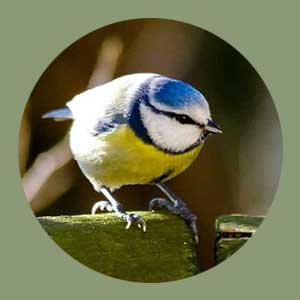Do you have a problem with pigeons eating your plants? You might not even know it and be blaming smaller birds, slugs, or snails.
The pigeons are smart and make their move in the early hours, while most of us are still in bed. They have their particular favourites and leave hallmark signs if they’ve been busy.
If the leaves of your sprouts or cauliflower look bare, or the leaves on your cherry tree are torn, you can bet a pigeon has been at work. They are also partial to lilac, so if the stems are stripped, just revealing the large veins, that is another sign of their handiwork.

Knowing how to stop pigeons eating plants in your garden just might save a crop of vegetables, leaving you with plenty of greens for your dinner!
Pigeons are particularly fond of brassica, that’s cabbage, broccoli, cauliflower, and sprouts. They are also partial to peas, cherries, and lilac, but if they’re hungry they will try most plants.
They do this to devastating effect in farmer’s fields, sometimes wiping out entire crops.
To protect plants from pigeons in the garden we should copy the farmers and cover them with netting or fruit cages.
There are also pigeon repellents and scare devices available that offer limited short-term success.
Table of Contents
Protecting your plants from pigeons
With over 2.5 million pairs of wood pigeons in the UK, it is understandable that they are a very common sight. They are fatter than their feral counterparts that prefer to dwell in the city, mostly down to the fact that our countryside and gardens supply them with a constant source of their favourite food. There are several ways to stop the pigeons from eating your plants; here are just a few;
Cover them
- Netting protects against all birds, not just pigeons. It is inexpensive to buy and easy to install. All that is needed are a few pegs or stones to weigh it down. It doesn’t look too unsightly over vegetables, but maybe not the most attractive method for protecting flower beds.
- Fruit cages are rigid structures that come in various shapes, sizes, and heights. When covered in mesh or netting they serve to protect everything beneath from garden birds, including pigeons. Done well they can look like an impressive piece of garden architecture.
Scare them
- Sound boxes that emit ultra-high-frequency noise trigger the nervous system in pigeons and frightens them away. They have a long-range and don’t bother domestic pets; nor can they be heard to the human ear unless standing very close. The downside is it may also frighten away other bird species.
- Hawk models will terrify a pigeon and send him on his way, the hawk is their natural predator. Install a realistic, resin model on a fence post or wall in your garden and say goodbye to nuisance pigeons.
- Shiny, rattly objects also deter pigeons. There are relatively inexpensive devices available, or you can make your own from compact discs or aluminium pie tins. The refracted light that bounces off in various directs confuses and deters pigeons.
- Iridescent ribbon is a human way to scare the pigeons away. Tie it around the affected area and the reflections it casts will deter the pigeons. Unfortunately, it will scare most other birds too.
Repel them
- Repellent sprays are very effective in certain circumstances. For instance, repellent liquid can be painted on to large surface areas such as roofs or balconies and will keep pigeons away. Repellent gels are applied via cartridge to windowsills and ledges. Taste aversion spray is designed for the garden and is safe to use on vegetation such as ornamental plants. Sadly, it shouldn’t be used on anything that is going to be eaten.

Home-made Pigeon Repellent
It is very cost-effective to make your repellent spray, it is also safe to use on everything in the garden, including edible crops.
All that you need is;
- 6-12 red chilli peppers
- 2 fl. oz. Apple cider vinegar
- 2.2 litres of water.
A spray bottle and a large, empty container with a tight fastening lid.
The method is simple.
Crush and chop the chillies until they are in tiny pieces, add them and the water to the container. Shake well and leave outside in the sun for 5 days to ferment. The hardest part might be finding 5 sunny days!
After this time, stir in the apple cider vinegar, give it another shake before decanting into the spray bottle. That’s it, go and spray liberally around your affected plants.
Final thoughts…
You will know if the pigeons have been in your garden and at your plants, they can strip them to just stems. Often this ruins the crop and prevents it from growing again that year.
Give some of my ideas of how to stop pigeons eating plants a try, they’re humane and most of them will still encourage the other songbirds to come into your garden.
If they have grazed heavily on your lilac, don’t worry unduly, as long as it is well-established, it is resilient and will live to fight another year.
